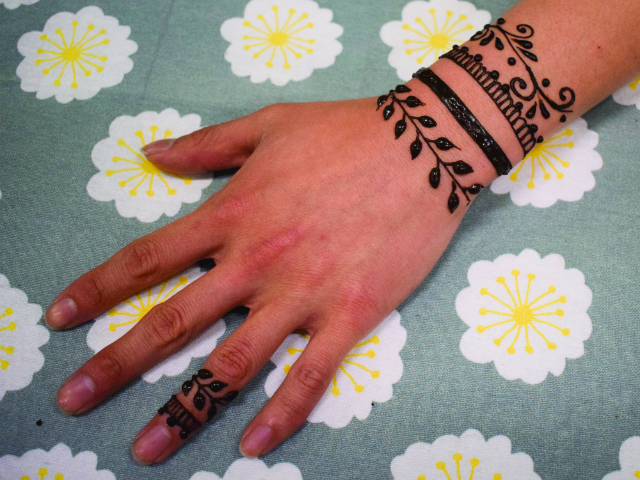
Skin is no longer just skin; it is a canvas waiting to be covered by artists and to be appreciated by art enthusiasts.
The art of decorating the body has been around for centuries and the past decade has seen a sharp increase in the number of people choosing to design their skin.
Henna tattoos have become a method of self-expression and self-identity; they make us unique in a world that is ever becoming more and more similar.
Henna tattoos are traditionally used in India and Northern African countries for celebrations such as weddings. In traditional Indian cultures, henna is used to signify the love between the bride and groom who are about to be married.
It is said that the darker the henna stain, the greater the love. In some parts of India there is a saying that if the groom cannot find his initials in his new bride’s henna, he is not allowed join her in the marital bed.
From signifying love to superstitions about marriage, henna is a vital part of Indian and North African culture. Not only is it pretty to look at, it is also a core tradition in these areas of the world.
As people migrate across the globe, so do their customs and traditions, including those surrounding henna. However, many of the important aspects of the henna traditions seem to be getting lost in the 21st-century western world.
Traditional “mehndi” designs are rarely chosen by Irish clients; they prefer to opt for more simple designs with modern patterns, this being most noticeable in the signature style of popular Irish henna artists.
As henna becomes more popular people have begun to practice the art of henna at home, calling themselves freelance artists and charging people for their service. In theory, this is a great thing as it is helping to spread the culture, but it is not all good.
One of the biggest issues with the henna culture in Ireland is the lack of education about henna and what it really involves. Many people who offer henna services are putting their customers at risk due to ignorance.
The most noted problem is the “black henna” craze that has swept the western world due to the fact that “black henna” is cheap to buy online. “Black henna” isn’t henna at all; it is a chemical paste made without any acknowledgement of its dangerous ingredients that can cause severe allergic reactions and burns to the skin.
Henna is a natural product which is perishable. Once the henna paste is made, it must be used immediately or frozen to protect its natural dyeing properties.
All natural henna cones should look homemade- if a cone looks mass-produced, it probably is. When looking for an artist to do your henna be sure to ask if they made the henna paste themselves.
Having henna done should always be a positive experience. Henna is a beautiful way of celebrating a marriage and it is now also a way of celebrating art in its most natural form.
Gráinne Jones



